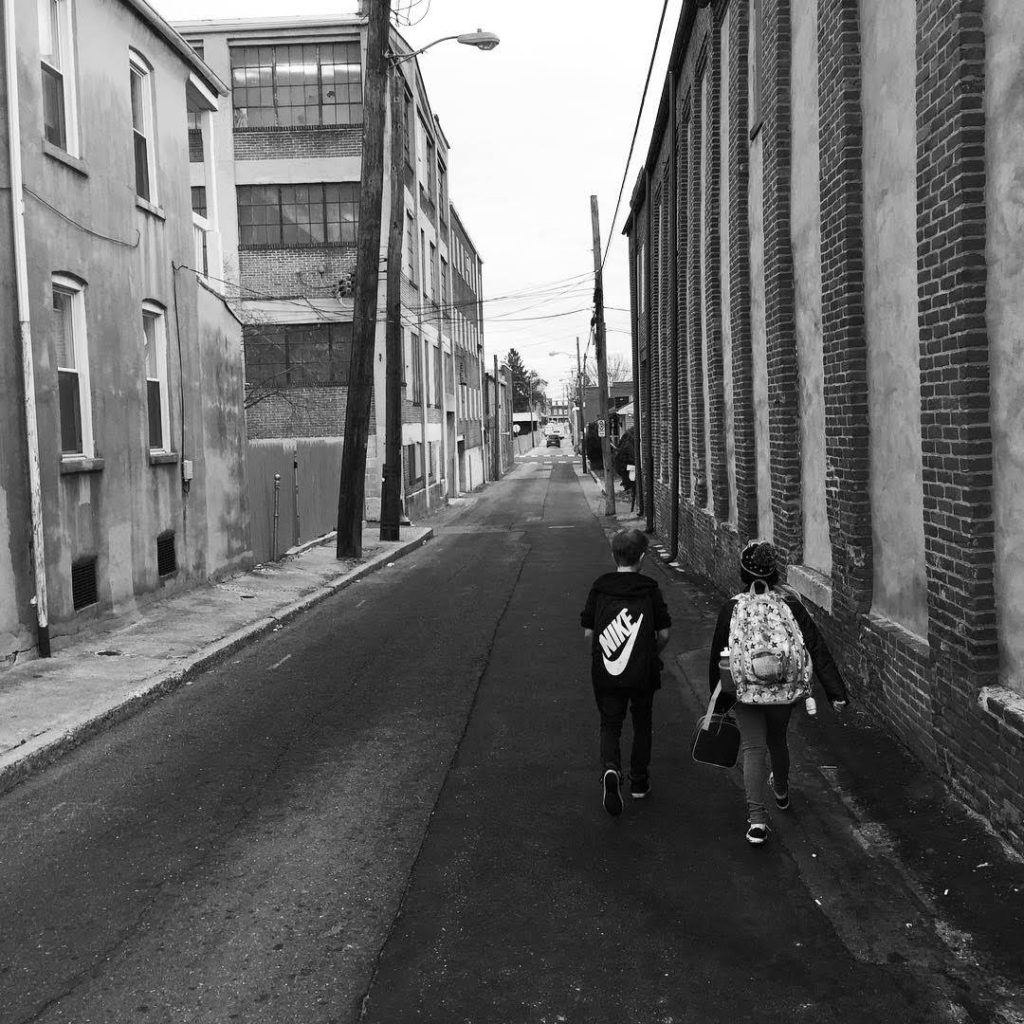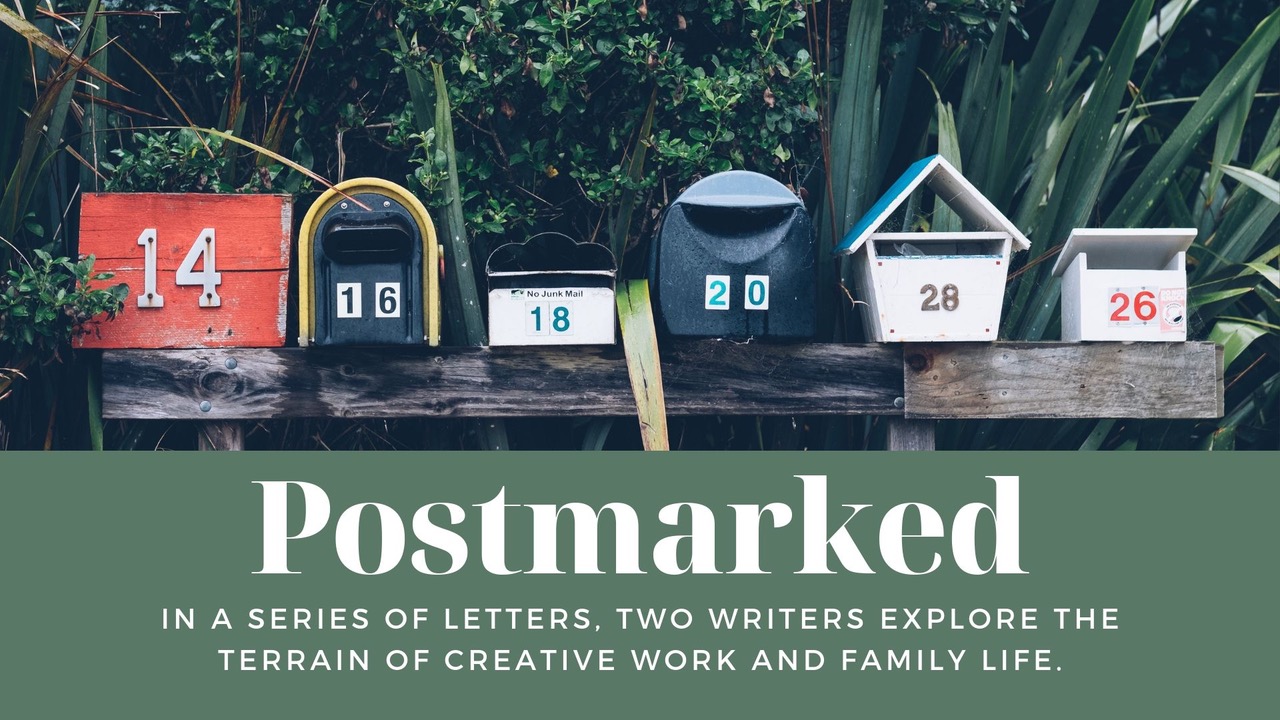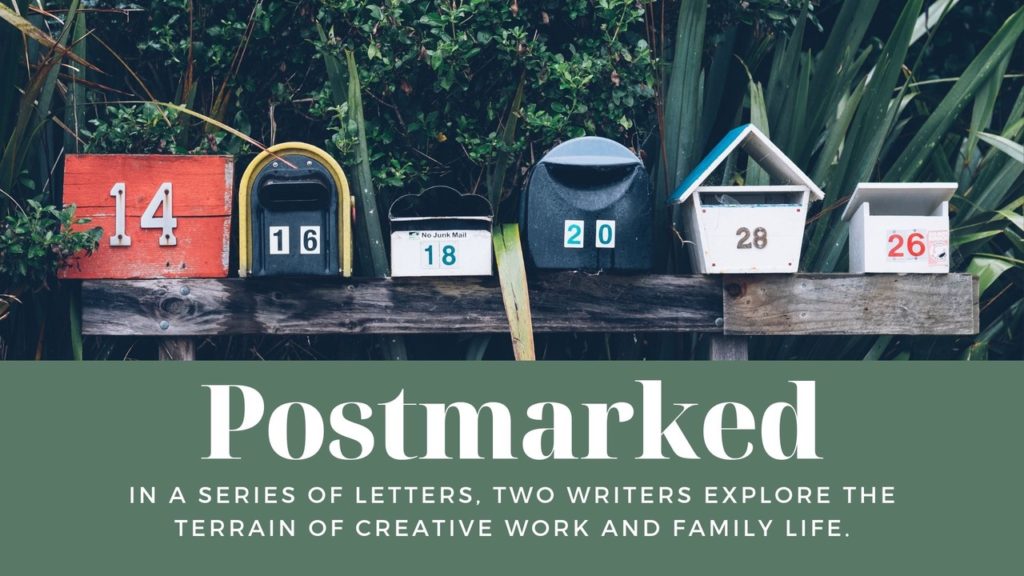I come up out of sleep and into the darkness of an early morning. I hear the cars out on James Street, idling. You can almost smell the coffee the drivers are drinking. I check my phone. 5:53. I wake up almost every morning just before 6 a.m. without an alarm. I’m not sure why. The fans hum in the house, and I would rather roll over and go back to sleep, but I reach over to Maile’s side of the bed. The covers are pulled back, the bed empty.
Usually, 5-year-old Leo is up before me, at around 5:30, and then I tell him it’s not time to get up so he sits on the chair in our room and waits for me to wake up. But on this morning he’s not up yet, so I put on some pajamas and make my way from Cade’s room to Abra’s room to Lucy’s room, making sure they’re awake and turning on lights.
I creak down the stairs, from the third floor to the first floor, and the family room light is on, and Maile is having some quiet time. We exchange gentle words in the half-light. A hug. And so our morning begins.
She makes her way back up to our bedroom, where she will do yoga or pray or sit quietly until 7 a.m. In the meantime, I make some pancakes, and little people begin their descent to the kitchen. Cade moves wordlessly into the bathroom and takes a shower. Then, Leo comes down, big smile on his face, asking about cereal. Abra is usually next, dressed in her school uniform, prim and prepared and ready for the day. Poppy peeks around the steps, her pacifier in her mouth, her hair braided from the night before. Lucy wanders down a little later. Sam can still sleep until 7:15, because he’s in elementary school.
By 6:45, things are moving: kids are eating pancakes and asking for more, looking for lunch boxes (which they pack themselves), checking their laundry for clothes, getting their backpacks in order, asking me to sign papers. I go and unlock the door for Lucy’s friend—her parents drop her off at our house every morning. By 7:00, Maile comes down. By 7:10, Abra’s three friends (and one of their younger siblings) have arrived (they go to school together).
“C’mon, we have to go,” one of the older kids will say while their sibling is running around in a panic looking for their school ID or the shoes they wanted to wear but can’t find or a jacket they left at school the week before.
At 7:15am, we gather in the dining room. We ask the other kids if they want to pray with our family before going to school.
“Oh!” one of the girls said the first morning we asked them this. “I looooove to pray!”
So, there we are. Two adults. Three teenagers. Four middle-school students. Two elementary-aged kids. Two littles. We stop, and we ask God to go with us. We ask for courage, and kindness, and positive attitudes. It is a small pocket of peace in a world that usually forgets to stop.
And then the whirlwind returns, as kids go out and walk their separate ways. We stand on the porch and watch them leave us, and then Maile drives others to school, and I take a deep breath, and put on some workout clothes, and walk to the Y.
These are good, hard, tiring, wonderful days. There is sometimes forgotten homework, and bad attitudes, and kids wishing they didn’t have to go, and lost things that can’t be found. And there are touching moments of love and grace and joy. They are full mornings.
And God is with us. I keep hearing the voice of the middle school girl, her eyes beaming.
“Oh! I looooove to pray!”
* * * * *
I’m sharing some big news in my newsletter tomorrow—the title and cover of my next novel, releasing the summer of 2020! You can sign up for the newsletter HERE if you’d like to get this info before anyone else.
And if you didn’t buy my newest release, Light from Distant Stars, maybe treat yourself to that today? Find out more about it HERE.



